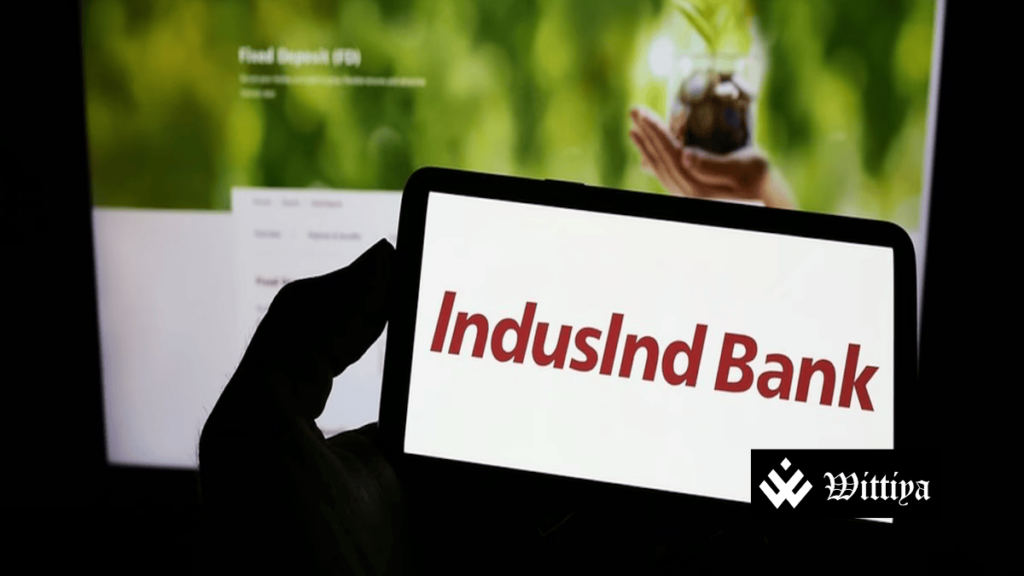Induslnd Bank, a leading private sector lender in India, faced a sharp 27% decline in its share price on March 11, 2025, due to accounting discrepancies in its derivatives portfolio. This plunge led to a significant loss for Life Insurance Corporation of India (LIC), the country’s largest life insurer, which saw its investment in the bank shrink by over ₹900 crore. The issue arose following the implementation of new RBI regulations, which affected the bank’s net worth and profitability outlook. Several brokerages downgraded the stock, citing operational weaknesses and management concerns.
Induslnd Bank, a major private sector lender in India, witnessed a massive 27% drop in its share price, hitting its lowest level since November 2020. This steep decline was triggered by accounting discrepancies in its derivatives portfolio, which the bank uncovered following an internal review conducted after the Reserve Bank of India’s (RBI) new regulations came into effect on April 1, 2024.
The sudden drop in Induslnd Bank’s stock price severely impacted Life Insurance Corporation of India (LIC), the country’s largest life insurer and a key domestic institutional investor, resulting in a loss exceeding ₹900 crore. LIC holds a 5.23% stake in Induslnd Bank, and as the share price plummeted to ₹655.95, the value of LIC’s investment in the lender declined from ₹3,398.61 crore to ₹2,475.33 crore.
Reasons Behind Induslnd Bank’s Share Price Crash
The stock rout stemmed from an internal review of processes related to asset and liability accounts in the bank’s derivatives portfolio. The review, triggered by RBI’s revised accounting rules, uncovered discrepancies that are expected to negatively impact the bank’s net worth by 2.35%. Analysts at ICICI Securities estimated that this could translate to an absolute financial impact of around ₹2,000-₹2,100 crore on a post-tax basis.
With this one-time adjustment likely to be accounted for in Q4FY25, the bank may report significant losses for the quarter. Additionally, operational concerns, including weakened financial performance and the bank’s managing director receiving only a one-year extension instead of the proposed three-year term, have raised red flags among investors.
Brokerages Downgrade Induslnd Bank Stock
Following the financial discrepancies, several brokerage firms downgraded Induslnd Bank, revising their target prices downward. According to a Reuters report, four of the 38 analysts tracking the stock issued a “sell” rating – the highest in at least two years. Despite this, the stock still maintains a majority “buy” rating among analysts.
Impact on Institutional Investors
Apart from LIC, the decline in Induslnd Bank’s share price also affected other major institutional investors, including mutual fund houses such as Kotak Mutual Fund, ICICI Prudential Mutual Fund, UTI MF, and Franklin India, all of which hold significant stakes in the bank.
Looking Ahead
The recent developments have intensified scrutiny on Induslnd Bank’s financial management and compliance practices. While the bank has assured corrective actions, investor confidence remains shaken. The coming months will be crucial in determining how the lender navigates this crisis and whether it can regain stability in the Indian banking sector.
